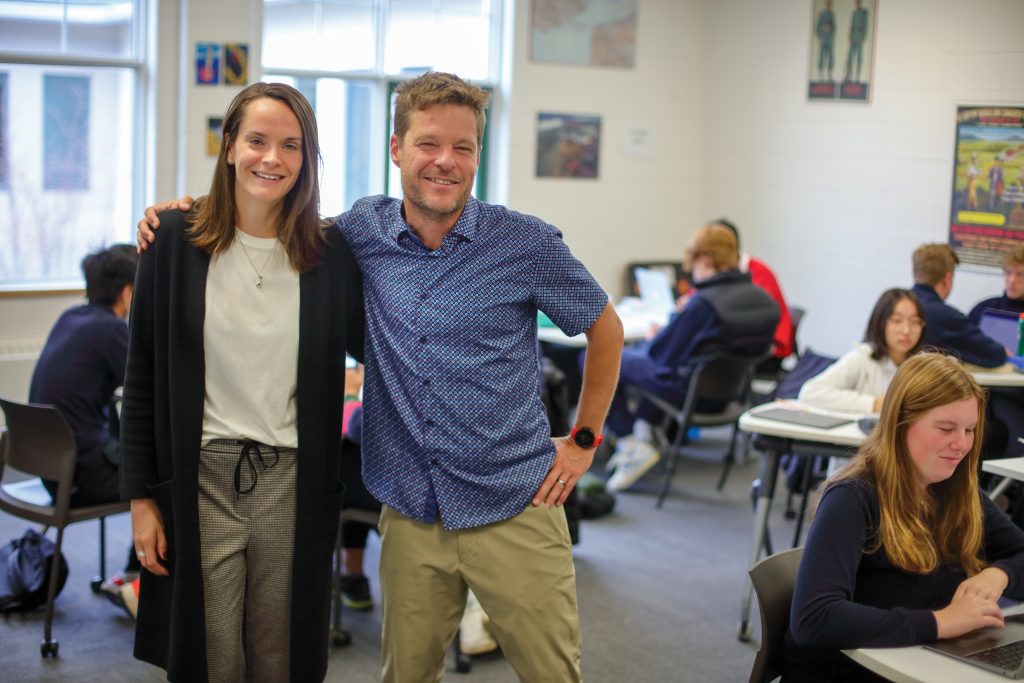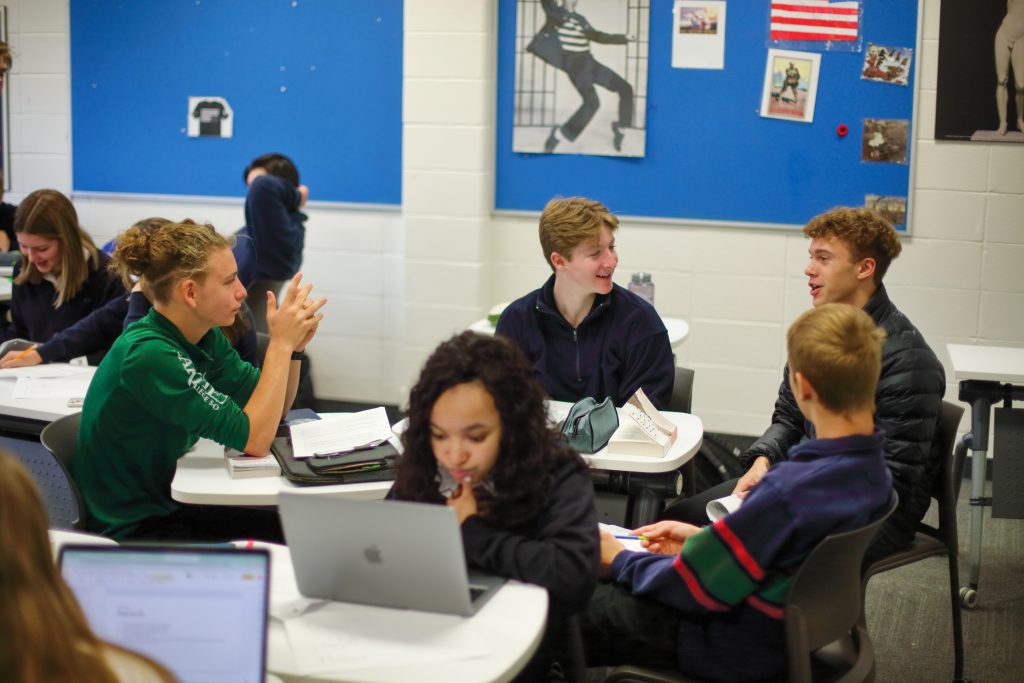
LCS teacher Amy McGrath and I are Canadians who teach Canadian History to many students whose first experience with the country began the moment they stepped off a plane in September. Our job is more complicated than it used to be. Aside from teaching students that while there are numerous overlaps between Canadian and American History, and that throughout the last 250 years, we have had the propensity to get involved in each other’s wars, occasionally against each other, there are stark differences between American and Canadian History. Our main task, however, is to separate fact from myth.
Canadians are destined to be misunderstood both by themselves and others. Despite popular rhetoric to the contrary, we are not a country that thanks bank machines, apologizes when slighted by others and the vast majority of us don’t live on the tundra but within 100 kilometres of the American border. Most Canadians reside in far more temperate places than Minneapolis or North Dakota. In real life, Canadians are not the self-effacing and goofy caricatures portrayed in the few times we appear in film. We have been forged in conflict. Canada is not a peace-keeping nation and never has been. We are, as the author and former LCS teacher John Boyko, wrote, “a warrior nation.” Canada has thousands of young men buried all over Europe because they felt that it was worth dying so that people they had never met, in faraway places, might be free. Canada fought both World Wars from start to finish. When the French broke the lines and left, our soldiers stopped the German assault at the Second Battle of Ypres, holding urine-soaked handkerchiefs over their faces to stop the Great War’s first gas attack. Some of our (LCS) Old Boys flew bombing missions to Berlin, Hamburg and Dresden, when the odds of coming back alive made it the closest thing to a suicide mission that the Second World War offered. Canada sent troops to bolster the defense of South Korea in 1950 dying on numbered hills and, during the Vietnam war, a conflict our government officially wanted no part of, 12,000 Canadians felt differently, crossing the border to the USA, to enlist and fight, mainly in Marine units.

We have fought all corners, sometimes even turning against ourselves, removing Indigenous children to residential schools, and interning Japanese Canadians during the Second World War. In the major conflicts of the blood-spattered 20th Century, Canadians have been the first to fight and the last to lay down their arms. Often for noble causes. Sometimes not.
The truth is Canadians have fought and will continue to fight, and will travel thousands of miles out of their way to do so. The War Experience—one of two unique new Grade 10 integrated courses that bring together studies in English and History—considers this idea. The course is not a celebration of war but an honest evaluation of its impact on Canada. Through literature, primary historical sources and—above all—hard work, students understand that the truth is attainable but also, that history is complicated. War has long been an accelerator of change. Women gained the right to vote in 1917 because of the First World War. Because of war, aircraft rapidly evolved from primitive wire and wood kites that could fly for three minutes in 1903, to machines capable of dogfighting high over the Western Front fifteen years later. Advances in antibiotics, wireless technology—the progenitor of the modern cell phone—and the ebb and flow of fear of bigotry were also possible because of war. Combat has and continues to bring out the very best in us and the very worst.
However, it is in a time of relative peace for Canadians, that the pursuit of historical truths has never been more important or more dangerous. Accordingly, the Grade 10 War Experience course is not a sedentary experience but a crucible where students are challenged to develop their understanding and take a stand on contentious issues. We ask the very best of them, pushing them to think, research, write and defend, and often change their mind. We demand that they stand on fact and truth. Students do this through exacting research, impassioned debate, Harkness table discussions and Socratic lessons.
This course is new but the spirit behind it is not. The A.W. Mackenzie Chapel, on campus, is a standing memorial to our Old Boys who fell defending the freedom of strangers in faraway places. The War Experience course commemorates that sacrifice and connects our students to their valour.
Integrated courses at LCS cover all the curricular expectations of two ministry courses. In this case, it is Gr. 10 English and Gr. 10 History. The War Experience is taught through the lens of how war has influenced Canada, Canadians, and the many people impacted by this phenomenon. LCS students have two teachers who facilitate the course, ensuring the exploration of this theme in diverse ways, while also intently focussing on the development of the technical skills inherent in reading and writing. Like the War Experience, LCS also offers Grade 10 students the opportunity to apply to participate in its Page-to-Stage (integrated English and Drama) course which encourages an authentic exploration of literature, examining the components behind its creation and the many pieces involved in staging it.
Written by: Rory Gilfillan P ’23
